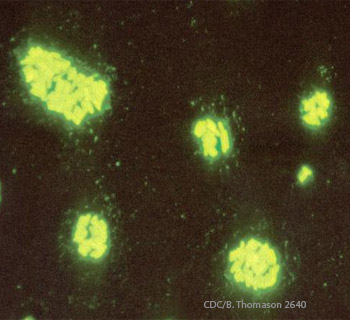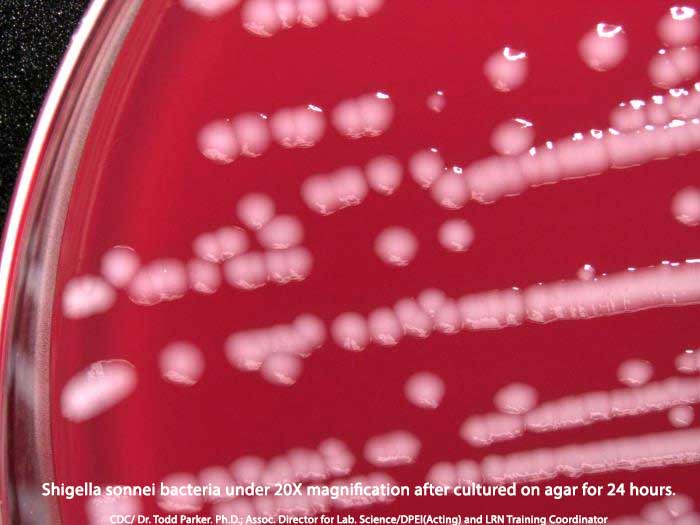The Kansas City, Missouri Health Department is reporting that Shigella cases are on the rise in that city. More than 143 cases have been diagnosed this year, mostly of children in daycare and elementary schools. There are usually only 10 cases of this illness in that city every year. About 60 students at Faxon Elementary School have been sickened with symptoms of this infection.
This foodborne illness is transmitted by the fecal-oral contact with a person having symptoms, or by eating contaminated food. In this particular outbreak, there are three different strains and some are resistant to antibiotics. That makes the illness difficult to treat.

The symptoms of a Shigella infection include abdominal pain and cramps, fever, watery diarrhea or bloody diarrhea, stool with mucous, the urge to go to the bathroom when bowels are empty, vomiting, and fever. Young children may have convulsions when they contract this infection.
In some cases, shigellosis, or bacillary dysentery as it is also called, can develop into Reiter’s syndrome, which causes reactive arthritis, and hemolytic uremic syndrome (HUS), a serious complication that can cause kidney failure and death. The symptoms of HUS include low or no urine output, lethargy, easy bruising, a rash, and jaundice. If anyone is experiencing those symptoms they should see a doctor immediately.
The main way to prevent Shigella infections is to wash your hands thoroughly and often with soap and warm water. Use paper towels for drying your hands; don’t use a reusable cloth towel. Smaller children should be supervised when washing their hands.
Anyone who has a Shigella infection should not prepare or serve food or drinks to others until they no longer have the bacteria in their systems. Anyone who has any type of diarrheal illness should also obey this rule.
Diapers can be problematic. Always dispose of diapers properly in a closed-lid garbage can. Always wash hands thoroughly with soap and water after changing and handling diapers. The changing area should be routinely disinfected with Lysol, bacterial wipe, or a mild bleach solution, especially when the child has a diarrheal illness.
Keep children and adults who are suffering from diarrhea out of swimming pools, hot tubs, shared baths, and spas for at least two weeks when diarrhea symptoms end. Swallowing contaminated water from pools is one way to contract this disease.
Before someone can return to work and/or school, negative stool samples are required. Children who attend daycare and anyone who works in a daycare must have one negative stool. Anyone who works as a food handler or works in the health care field must have two negative stools before they can return to work.
If you or a loved one has experienced the symptoms of a Shigella infection, see your doctor.
